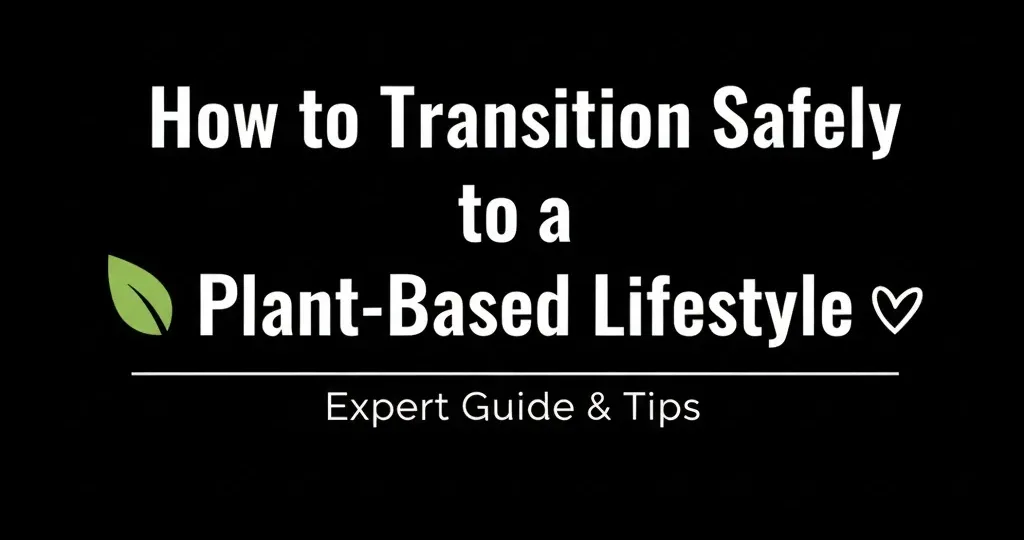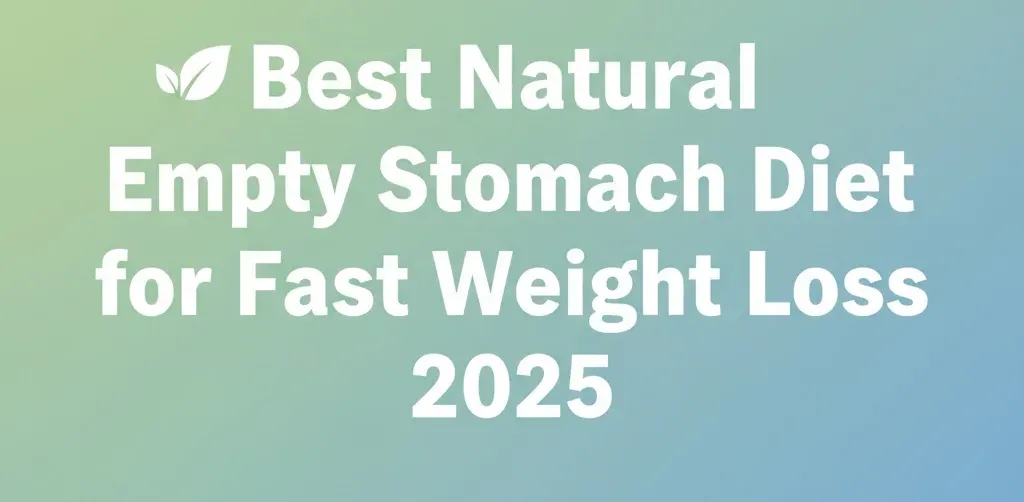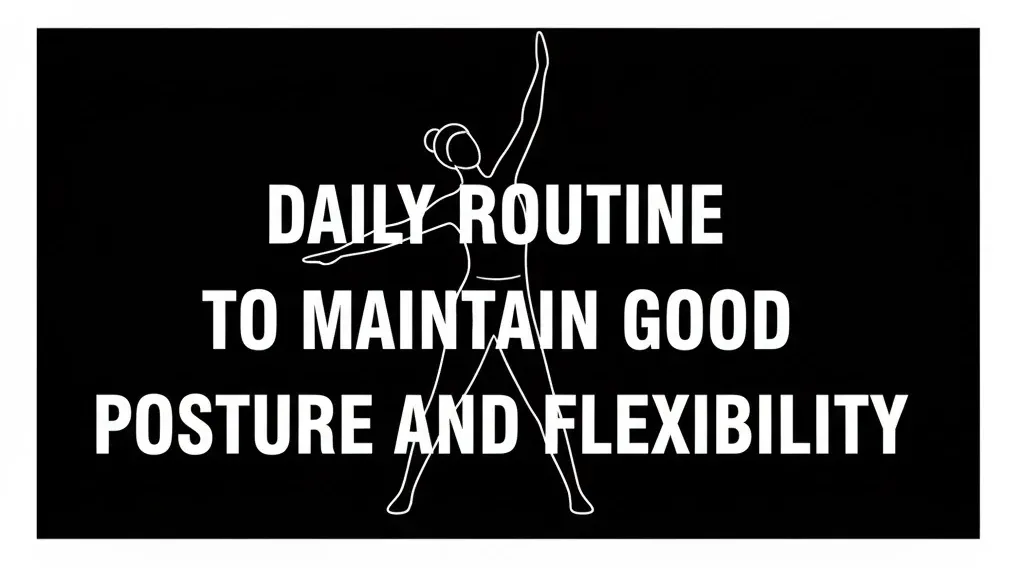Shifting to a plant-based lifestyle can transform your health, energy, and environmental impact. However, making this change safely requires proper planning, nutritional awareness, and consistency. This guide explains how to transition safely to a plant-based lifestyle with clear steps, balanced diet tips, and simple food substitutions. Whether you want to reduce animal products or fully embrace a vegan diet, this article helps you make the switch confidently and healthily.
Understand What a Plant-Based Lifestyle Means
A plant-based lifestyle focuses on consuming foods derived mainly from plants, including vegetables, fruits, grains, legumes, nuts, and seeds. Unlike strict vegan diets, some versions may still allow small portions of animal products. The goal is to prioritize whole, unprocessed plant foods for improved nutrition and reduced environmental impact.
Benefits of a Plant-Based Lifestyle
Adopting a plant-based lifestyle offers several scientifically proven benefits:
-
Supports heart health and lowers cholesterol
-
Aids in weight management and improved digestion
-
Reduces the risk of chronic diseases
-
Boosts energy levels naturally
-
Promotes better skin and overall wellness
Start Gradually for a Smooth Transition
Avoid sudden changes. Begin by incorporating plant-based meals a few times a week. Replace dairy milk with almond, soy, or oat milk and try plant-based proteins like lentils or tofu instead of meat. Gradual adaptation allows your body and taste preferences to adjust naturally.
Plan Balanced Meals for Proper Nutrition
A balanced plant-based diet must include essential nutrients like protein, calcium, vitamin B12, iron, and omega-3 fatty acids. Tracking these ensures you meet daily requirements without deficiencies.
Key Nutrients and Their Plant-Based Sources
| Nutrient | Plant-Based Sources | Function |
|---|---|---|
| Protein | Lentils, tofu, chickpeas, beans | Builds and repairs tissues |
| Iron | Spinach, quinoa, lentils | Supports oxygen transport in blood |
| Calcium | Fortified plant milk, sesame | Strengthens bones and teeth |
| Vitamin B12 | Fortified cereals, supplements | Supports nerve and brain function |
| Omega-3 Fatty Acids | Flaxseeds, chia seeds, walnuts | Maintains heart and brain health |
Understand Your Protein Needs
Many people assume plant-based diets lack adequate protein, but this is a myth. Combining different plant proteins can provide all essential amino acids. For instance, rice and beans together form a complete protein meal.
Examples of High-Protein Plant Foods
| Food Item | Protein per 100g | Best Way to Eat |
|---|---|---|
| Lentils | 9g | Soups, curries, salads |
| Tofu | 8g | Stir-fry, grill, or scramble |
| Chickpeas | 19g | Roasted, hummus, or curries |
| Quinoa | 4g | Salads or cooked meals |
| Black Beans | 8g | Wraps or rice dishes |
Incorporate Whole Foods Over Processed Ones
Focus on whole grains, fruits, vegetables, legumes, and nuts. Limit processed plant-based alternatives like mock meats, which often contain additives and excess sodium. Whole foods provide the natural fiber, vitamins, and antioxidants your body needs for long-term wellness.
Stay Hydrated and Manage Fiber Intake
Plant-based diets are naturally high in fiber. While beneficial, a sudden increase can cause bloating or discomfort. Increase fiber gradually and drink plenty of water throughout the day. Aim for at least 8–10 glasses daily to support digestion and nutrient absorption.
Plan Your Grocery List
Preparation is key for maintaining consistency. Build your grocery list around whole, versatile plant ingredients.
Sample Grocery List for Beginners
| Category | Recommended Items |
|---|---|
| Fruits | Bananas, apples, oranges, berries |
| Vegetables | Spinach, broccoli, carrots, bell peppers |
| Grains | Oats, brown rice, quinoa, whole-grain pasta |
| Proteins | Lentils, chickpeas, tofu, black beans |
| Nuts & Seeds | Almonds, flaxseeds, chia seeds, walnuts |
| Plant Milks | Soy milk, almond milk, oat milk |
Learn to Read Food Labels Carefully
Check ingredient lists for hidden animal products such as gelatin, whey, or casein. Look for labels marked “plant-based” or “vegan certified.” Understanding food labels helps you make ethical and safe choices without compromising nutrition.
Meet Your Vitamin B12 and D Needs
Vitamin B12 and D are not naturally abundant in plant foods. You can get these through fortified foods or supplements.
-
Vitamin B12: Found in fortified cereals, nutritional yeast, or supplements.
-
Vitamin D: Get sunlight exposure or use fortified plant milk and mushrooms.
Meal Prepping Helps Maintain Discipline
Prepare meals ahead of time to avoid relying on processed foods. Cook beans, chop vegetables, and store them for quick meals. This habit saves time and keeps you aligned with your plant-based goals even during busy days.
Handle Social Situations Confidently
Dining out or attending social gatherings can be challenging at first. Research restaurant menus beforehand or suggest plant-based-friendly places. Carry snacks like nuts or energy bars to stay consistent when options are limited.
Monitor Your Energy and Health Regularly
During your transition, keep track of your energy levels, digestion, and mood. Consult a nutritionist if you notice fatigue or other symptoms. Balanced meals and proper supplementation ensure a safe transition to long-term plant-based living.
Simple Plant-Based Swaps
-
Replace cow’s milk with almond or oat milk
-
Swap butter with avocado or nut butter
-
Replace eggs with chia or flaxseed gel for baking
-
Choose lentils instead of minced meat in curries
-
Use coconut yogurt instead of dairy yogurt
Sample One-Day Plant-Based Meal Plan
Breakfast: Overnight oats with almond milk, chia seeds, and berries
Snack: Mixed nuts and banana
Lunch: Quinoa salad with chickpeas, cucumber, and lemon dressing
Snack: Roasted chickpeas
Dinner: Lentil curry with brown rice and steamed broccoli
Dessert: Dark chocolate with walnuts
Common Mistakes to Avoid
-
Switching diets abruptly without planning meals
-
Relying on processed plant-based substitutes
-
Ignoring essential nutrients like B12 and iron
-
Consuming excessive refined carbs
-
Skipping protein-rich legumes and pulses
Tips to Stay Consistent
-
Keep new recipes exciting with global flavors
-
Join online plant-based communities
-
Track your meals using free apps
-
Reward yourself for consistency
-
Focus on health benefits rather than restrictions
Long-Term Sustainability and Mindset
A plant-based lifestyle is not a short-term diet but a long-term commitment to health and ethical choices. Be patient with your progress and flexible with your approach. Over time, your taste preferences evolve, making it easier to enjoy and sustain this lifestyle.
FAQs
Q1. How can I get enough protein on a plant-based diet?
Combine foods like lentils, beans, tofu, and quinoa to meet daily protein needs.
Q2. Do I need supplements on a plant-based diet?
Yes, especially for vitamin B12 and sometimes vitamin D.
Q3. Can children follow a plant-based diet safely?
Yes, with proper planning and balanced meals under guidance.
Q4. How long does it take to adjust to a plant-based lifestyle?
Most people adapt comfortably within two to four weeks.
Q5. Is a plant-based diet expensive?
Not necessarily. Whole foods like beans, grains, and vegetables are budget-friendly.
Q6. What is the best way to start?
Begin by adding one plant-based meal per day and increase gradually.
Conclusion
Transitioning safely to a plant-based lifestyle involves preparation, nutritional awareness, and consistency. Start gradually, focus on balanced meals, and ensure adequate intake of essential nutrients. With mindful choices and simple swaps, you can enjoy better health, increased energy, and a sustainable future. This approach supports not only personal wellness but also a positive environmental impact for generations ahead








